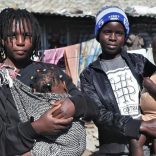WFP Mozambique: Emergency Response External Situation Report (18 August 2025)
Suspected cases of cholera in Maputo City

Photo: O País
There may be cases of cholera in Maputo city, namely in the municipal district of KaChamanculo, KaMaxaquene, KaMavota and KaTembe, where 7,600 cases of diarrhoea have been registered since January.
So far, there are 24 suspected cases with strong indications of being cholera, but certainty depends on laboratory tests currently under way. KaChamanculo has registered five suspected cases, KaMaxaquene two, KaMavota four and KaTembe 13.
Municipal health authorities are concerned about the situation and are monitoring the number of diarrhoea cases, which have risen significantly. From January until last Monday, 7,600 cases were registered, against just over 6,000 registered in the same period last year.
Alice de Abreu, municipal Councillor for Health and Social Action, explains the steps that the authorities are following to control the disease.
“We are registering an increase in cases of diarrhoea suggestive of cholera,” de Abreu said. “But we cannot say, at this moment, that it is cholera. In order to confirm cases of cholera, we need to have the laboratory results. The samples were collected and sent to the National Institute of Health (INS) and we are awaiting the results. Maputo city has already reported a total of 7,600 cases of diarrhoea to date and, if we compare it with the same period in 2022, we see that we had 6,700 cases, so we had an increase of just over 1,000 cases. It is a worrying situation for the entire city of Maputo.”
One of the problems that leads to the occurrence of diarrhoea in Maputo City is associated with rainfall and poor sanitation, specifically the removal of garbage and stagnant waters.
Cholera, also known in Mozambique as the “dirty hands disease”, is transmitted by bacteria that can contaminate people through consumption of contaminated water or poorly washed food.
Health authorities are carrying out awareness-raising actions so that people take the necessary precautions to prevent the spread of the disease.
By Rui Ddgedge












Leave a Reply
Be the First to Comment!
You must be logged in to post a comment.
You must be logged in to post a comment.